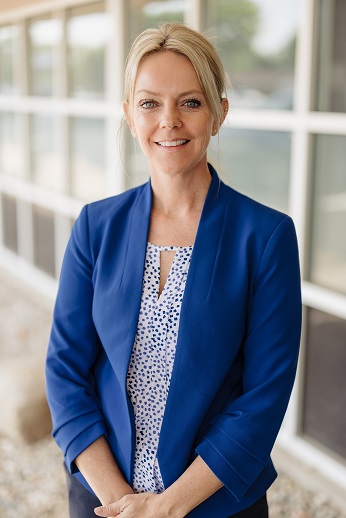Mental Health Support Services at Riverside Healthcare: Care Beyond Hospital Walls
July 16, 2025
Tags: Behavioral Health
When it comes to mental health, healing doesn’t only happen inside hospital rooms. At Riverside Healthcare, comprehensive support extends well beyond the walls of traditional care settings. Through a outpatient services, Riverside is committed to meeting individuals where they are—both literally and emotionally. 
From school-based counseling and crisis response teams to virtual therapy and wellness education, these services are designed to provide accessible, personalized care that empowers individuals and strengthens the community. Rachel LaGesse, Director of the Outpatient Behavioral Health at Riverside, offers helpful information surrounding available resources and what individuals can expect.
What Does Outpatient Care Involve?
Outpatient behavioral health at Riverside Healthcare includes two main programs: partial hospitalization (PHP) and intensive outpatient (IOP). The key difference between the two lies in the number of treatment hours based on the client’s needs.
Both programs involve group therapy led by a master’s-level licensed clinician and include weekly sessions with a Riverside psychiatrist. Unlike inpatient care, where clients stay at the hospital, outpatient clients participate in treatment—potentially up to five hours a day—then return home afterward and come back for their scheduled sessions.
“Our outpatient program is called Pathways. When someone comes to us, a Pathways clinician meets with the client on that first day, where we discuss services, go over consents,” states LaGesse. “Then, we work with the client on assessing what their treatment needs are. Meaning, the current mental health symptoms they are experiencing and the impact that's having on their daily functioning.”
Who Is a Good Candidate for an Outpatient Program?
Riverside’s Pathways outpatient program is designed for individuals experiencing mental health symptoms that interfere with daily life—such as difficulties at work, in school, or with sleep. It’s also an effective step-down option for those transitioning from inpatient or residential treatment, and it can help prevent future hospitalizations.
Program placement is based on the client’s symptom acuity, age, and specific treatment needs. Groups are age-specific (e.g., separate for children and adults), and within adult programming, specialized tracks are available, including dual diagnosis groups for those with both mental health and substance use concerns, and a trauma-specific group for adult women. Each client is matched to the most appropriate cohort based on their unique needs.
“Our child group is from seven to eleven years of age. Adolescent services start at the age of twelve to the age of seventeen, and then adults are eighteen and older,” explains LaGesse. “We also pay really close attention to the fact that patients may be struggling with substance abuse as well as mental health symptoms. In that case, they would be appropriate for our dual group.”
What Can Patients Expect During and After the Pathways Program?
The average length of stay in Riverside’s outpatient program is typically three to four weeks, though this can vary based on a client’s engagement and initial treatment needs. Client progress is reviewed weekly with a psychiatrist, who helps determine readiness for discharge and appropriate next steps. These may include referrals for individual therapy, continued medication management, or other supportive services based on the client’s needs.
“A lot of our clients do have follow-up care once they complete services with us. That's not to say everyone has to be on medication to receive outpatient services,” shares LaGesse. “It's something we offer and evaluate for. If they are started on medication that has been beneficial, they will certainly continue to have follow-up care with one of our Riverside psychiatrists.”
She also notes that individuals can self-refer to the outpatient program. They can reach out to Pathways directly at 815-936-7373. A team member will discuss services, screen for appropriateness, and work to get them scheduled.
Click here for more information about Riverside Behavioral Health and support services.